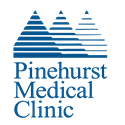September 5th, 2023

By: Chase Nielsen, DO, board-certified family medicine physician
As the leaves change and the weather cools down, respiratory syncytial virus (RSV) season begins to ramp up.
RSV is a common, highly contagious virus. It is transmitted by droplets when someone coughs or sneezes within three to six feet of you. Additionally, the droplets can live on unsensitized surfaces for up to 12 hours. If you touch a surface that has RSV viral particles and touch your face, nose, mouth, or rub your eyes, then you are also susceptible to infection.
Most will experience RSV symptoms such as the flu and common cold. They can include the following:
- Fever
- Cough
- Difficulty breathing
- Sneezing
- Irritability
- Decreased appetite
- Wheezing
With symptoms of all RSV, the flu and the common cold being similar to one another, there are tests to distinguish between them to help providers guide treatment plans.
Infants, young children, the elderly and those with weakened immune systems are at risk of significant respiratory infection from RSV. RSV accounts for almost 2 million doctor visits in the United States for children less than five years old and newborns have the highest rate of hospitalization from RSV.
If someone develops a fever or has difficulty breathing, it is time to consult your doctor. An indication of when your child is having difficulties breathing is when they use their accessory muscles, such as their ribs, shoulders, clavicles and stomach, to breathe. If using a pulse oximeter and it shows oxygen levels less than 90-92 percent, you may need to seek emergency medical care.
There are several things you can do to help protect yourself and your loved ones from RSV. This includes washing your hands frequently, avoiding others who are sick, disinfecting surfaces, covering your mouth when you cough or sneeze and wearing a mask when you are feeling ill.
Those aged 60 years and older also have the option of receiving an RSV vaccine to help protect them from becoming sick. Those interested should talk to their healthcare provider to see if the vaccine is right for them.
Dr. Chase Nielsen is a board-certified family medicine physician at Pinehurst Medical Clinic Primary Care- Carthage Street.
Back





